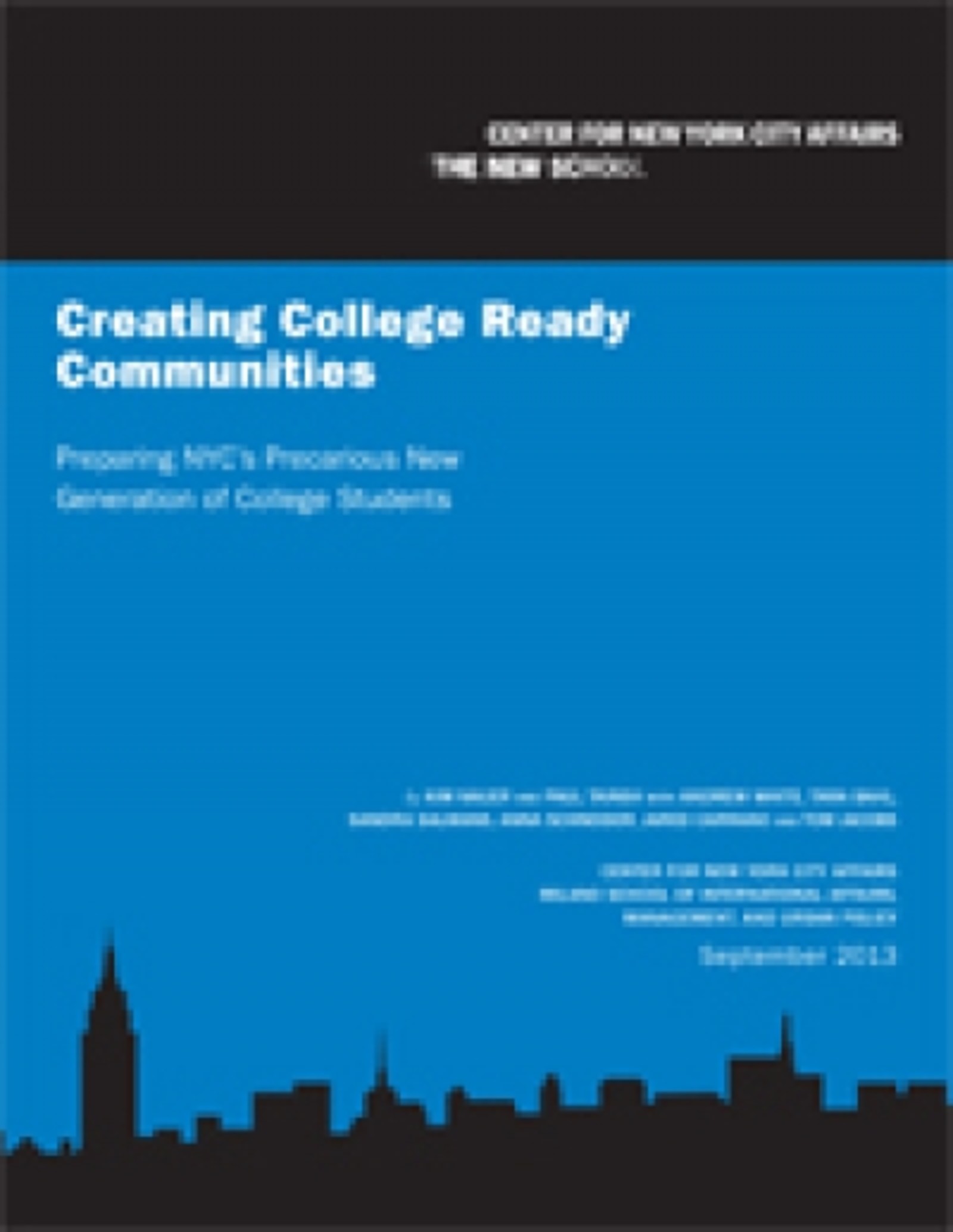Report looks at why kids aren't college-ready

High school graduation rates are higher than ever before but college completion remains frustratingly elusive for New York City's public high school graduates.
Barely half of students who enroll in CUNY schools graduate with a Bachelor's degree in six years; fewer than one in five of the students who enrolled in city community colleges in 2009 earned a two-year Associate's degree by 2012. Many city high school grads begin college at a disadvantage: not even a third of New York City's class of 2012 earned high enough test scores to avoid remedial courses at CUNY, which has been nicknamed the "13th grade."
A new report from the Center for New York City Affairs (Insideschools' parent organization), Creating College Ready Communities: Preparing NYC's Precarious New Generation of College Students, explores why so many New York City high school grads struggle to earn college degrees. It gives recommendations on how the city's Department of Education and schools could improve college preparation in K-12 enabling students to have a better chance of success. The report follows four years of research by the Center in 14 low-income city schools which were working to improve their college numbers.
"A large majority of students at every income level say they want to go to college -- and more and more of them are going to college. But the number of students actually completing a college degree remains stubbornly low," said Kim Nauer, education project director at CNYCA, who led research. "As New York prepares for its first new mayor in more than a decade, this report lays out the key challenges new civic leadership will face in bringing effective college accesses and readiness measures to the nation's largest school district."
Nauer (who helped craft "Insidestats" for our high school profile pages), says the report is especially useful for anyone working with students who want to go to college or others who want to know more about the city's college readiness efforts.
Highlights include:
- New York City faces a tremendious challenge in its efforts to get all students academically ready for college or work. Just 29 percent of graduates in the Class of 2012 had test scores high enough to avoid remedial courses at the City University of New York.
- Many schools offer access to one or two college-level courses -- and passing even one course improves outcomes. An internal Department of Education analysis found that taking even one CUNY College Now or AP course reduces the likelihood that students will need remedial classes in college.
- The city's nonprofit sector plays a crucial role in filling college guidance gaps : High school counselors are typically able to offer only basic application and financial aid help. The nonprofit sector provides a crucial assist.
- Most city high schools do not offer a full college prep curriculum. Students should have access to advanced math and science courses to prepare for college. An analysis of citywide Regents exams for Algebra 2, Chemistry and Physics revealed that only 28 of 342 schools reviewed had all three of these courses--and 46 schools had none.
- This academic challenge begins long before high school. Only 25 percent of New York 8th graders met state standards for reading in 2013. College preparation is daunting when reading skills lag so far behind.
- Guidance counselor caseloads are too high to give students the help they need with college prep : In 61 percent of schools, counselors have caseloads of 100 to 300 students-- and in most of the remaining schools the caseloads are even higher.
Visit centernyc.org to read more and download a PDF copy of the repot.
Please Post Comments